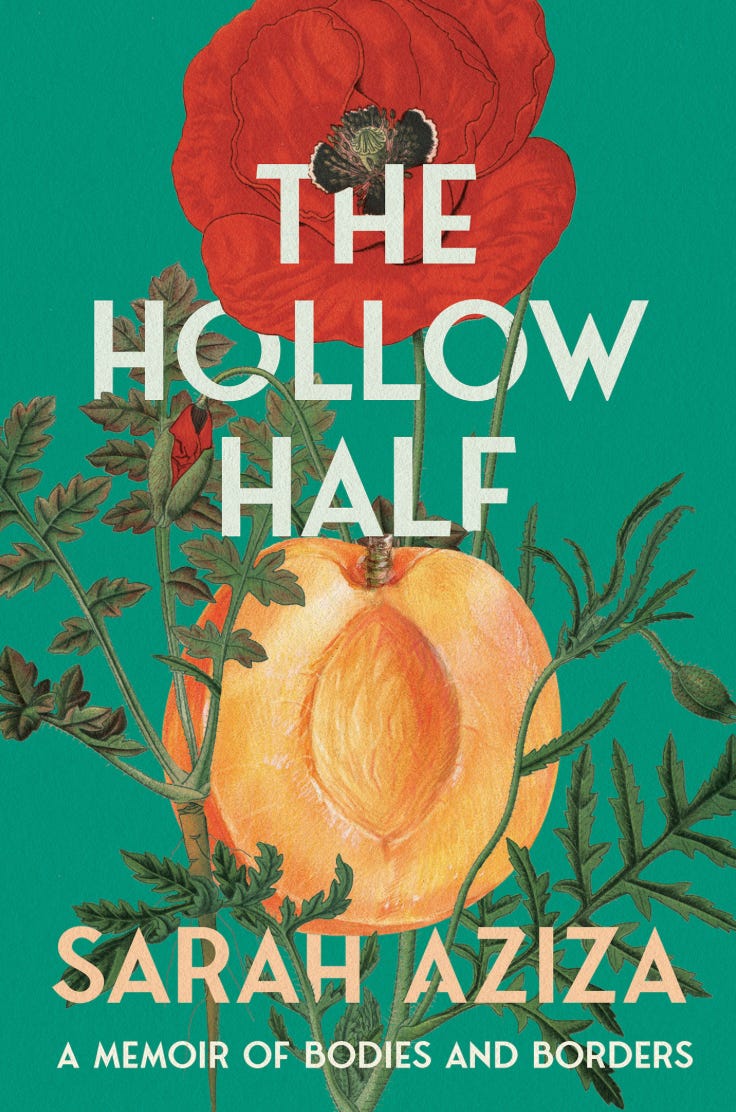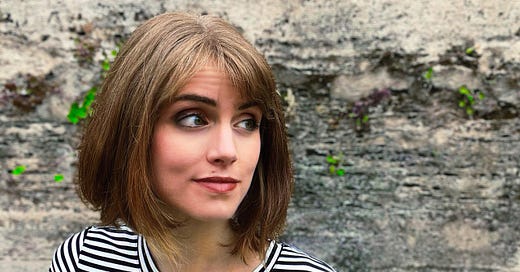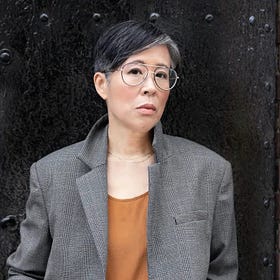Sarah Aziza Chooses the Pain of Love
"My intuition and I were still not on very good terms, but I felt my intuition prick at that moment. There was something in me that leapt up."
Hello friends and happy Saturday,
I know many of us are protesting today, and I’m sending you solidarity. Here are some reminders about how to prepare and about protestor’s rights. Take care of each other out there.
This week, we had the pleasure of airing an interview with Sarah Aziza, a Palestinian American journalist, translator and memoirist with roots in ‘Ibdis and Deir al-Balah, Gaza. Sarah has had a career primarily in journalism, working on stories about human rights, refugees, and the Middle East, but recently she has completed a different, more personal project: a woven memoir about her eating disorder recovery and her excavation of family history in Palestine. It’s called The Hollow Half.

We talked about the months in 2020 when Sarah emerged several months of inpatient treatment for anorexia and experienced a full-body breakdown. It was an interval when, she says, she was forced to listen to her body after a lifetime of ignoring and suppressing its pains and hunger. At the same time, she began asking her father about his experience being forced into exile from their family home in Palestine during the Nakba, sensing that her own pain might have something to do with his. Her whole life, she’d worked hard to give her father the triumphant story of a successful, thriving American daughter —a happy ending to his traumas as a refugee— but now found that her survival seemed to depend on investigating the intergenerational suffering she’d been trying to eclipse.
She began keeping notes on her conversations with her dad in a Google doc, but initially balked when a friend suggested she might be working on a book. She said no, she was never going to write again. "My intuition and I were still not on very good terms, but I felt my intuition prick at that moment. There was something in me that leapt up."
This is a beautiful, profound conversation about learning to come home to one’s own body, history, intuition, and one’s own pain. Sarah talks about how cutting oneself off from one’s body/pain/history also means severing one’s connection to their intuition and their humanity— sentiments that seem especially apt today.
“This book taught me that life is going to hurt a lot as long as I’m here. There are certain types of pain that are actually a sign that I have my humanity, that I’m doing something right. I’m trying not to disappear, not to run away from the pain that is just the pain of love.”
-Sarah Aziza
For more background on some of the history that Sarah mentions in the episode, I’d encourage you to read Sarah’s essay for Lux Magazine, and her exchange of letters with the writer George Abraham in The Nation.
Not mentioned in the episode, but an important read: Sarah’s piece this week in The Nation.
In other news:
Thresholds alum Catherine Lacey is launching her new book, The Mobius Book, in New York this week! Check out her tour dates and preorder the book. There’s also an excerpt of the book up at
.I am loving J Wortham’s Substack,
, especially this latest post about joining a run club.
That’s all for now! If you like what we’re up to here, please share the newsletter and the podcast far and wide — it really does help.
Til next week—
-Jordan
Lisa Ko Destroys A Lifetime of Journals
"If I didn’t write it down, did it even happen? Would I remember it? What would that mean for me?"
Carvell Wallace Gets Into Right Relation
"I was aware as I was writing the book that I was undergoing this transformation. I'm still undergoing it."
Sabrina Imbler Finds Their Forms
"I'm really interested in going beyond that relationship of sameness."








this conversation was a privilege, and a moment of shade in the midst of a searing week. thank you.
Awww thank you Jordan!